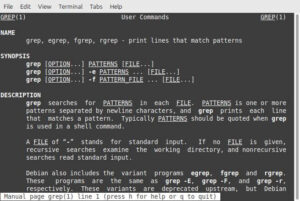When news disappears from search results and social media favors polarization, RSS keeps you in touch with real reporting from sources you trust.

Let’s face it: as things stand now, little would change about disinformation, socio-political polarization, and democracy in general if social media and AI bots suddenly started using only FOSS. Even if we had all the source code of those platforms, building something healthier with it, and making enough people use it could take so much time and money that it would likely never happen.
Luckily, a non-negligible part of the solution to those problems already exists, and is open source. We just have to convert enough people to it, and if you ask me that’s a task that’s more important, more urgent, and probably much easier than making everybody switch to Linux and FOSS in general.
I’m talking about Really Simple Syndication, of course, which no matter what you may hear, is not obsolete tech. Only RSS aggregators can show all the latest news from as many sources you want in one window, on your schedule, and without intermediaries and the endless centralized tracking of social media.
The Advantages of RSS
Besides privacy, two other huge advantages of RSS aggregators are efficiency and lack of filtering. Reading the same amount of news in RSS readers takes much less time and perseverance than in any social media, because the news isn’t buried underneath an endless pile of advertising, AI slop, food porn, and kittens.
Above all, you get all the news a website publishes, not just those that whoever controls the algorithm wants you to see for their profit. That’s why I argue that converting as many people as possible to RSS aggregators is more urgent than converting them to FOSS. Much of today’s political polarization comes from people seeing only the news that convince them that everybody else is wrong, and that’s how democracy dies.
One big reason why people stopped using RSS is the suicidal, unbelievably stupid practice of many websites to show and promote their social media accounts but not their RSS feed. Please do snob and shame all such websites! Tell them to be like FOSS Force instead, which besides its RSS feed icon in the top right corner of each page also offers the FOSS Force News Wire, a presentation of the RSS feeds from a curated list of 108 open sourcey sites.
How to RSS
The other thing to do is to help everybody to install an – obviously open source – RSS aggregator. That’s easy, because there are many of them, for every platform, skill levels, and news reading habits. Here’s a really incomplete selection just to get you started, but please do add other choices in this article’s comments.
The hardest to manage but most powerful RSS aggregators are the multi-user ones you can install on any web server and then access from any device. The one I prefer is FreshRSS, for its clean interface and powerful news filters.
Desktop-wise, the first app I personally suggest to generic computer users every time I can is Akregator. To be completely honest, if I thought it would be productive, I would suggest something else (more on this in a moment), but Akregator is a great app, and is my most frequent suggestion because, besides being quite powerful, it also runs on Windows. For Linux users who prefer Gnome-based applications, you might also try Liferea. For Linux users who prefer the command line, without a doubt you should try Newsboat.
The last category of RSS aggregators everybody needs to know, and possibly use, is email clients. Open source, cross-platform applications like Thunderbird and Evolution can download, sort by category into separate mailboxes, display, and search RSS feeds just like ordinary email messages. Here is how the author of an “RSS in Thunderbird” tutorial explains why treating RSS as email can be great: “Just like email, I can favorite/star articles I love or want to revisit later. I can utilize tags and Quick Filters and tabs… Plus, sharing something is as easy as forwarding an email.”
Both Evolution and Thunderbird also run on Windows, with the latter also being available for macOS and Android. Considering all this, you may ask: If Thunderbird and Evolution make getting news via RSS as easy as reading email, why don’t I recommend them across the board?
The reason is simple: in my experience the people who would need RSS the most are the people most addicted to toxic, heavily doctored social media feeds, so they are also people who likely never use email to begin with — except for work. When they are actually forced to use email — to register on some website or something — they’ll just use Gmail and won’t hear of any other choice.
In other words, as sad as it is, these days I see many people who may switch to Linux but not to email — and consequently not to any email client. Asking them to “learn email,” instead of trying something simpler and single purpose like Akregator, may scare them away from RSS. That’s why I don’t even try. Then again, that’s just my personal experience, and I’d love to be proven wrong.
But to return to the point: information that really wants to be free needs RSS, and RSS users. That’s all that matters. Please free everybody you can from the cage of time-wasting fake “information” by giving them an open source RSS reader. It may even be a great way to make them use other FOSS.

Marco Fioretti is an aspiring polymath and idealist without illusions based in Rome, Italy. Marco met Linux, Free as in Freedom Software, and the Web pre-1.0 back in the ’90s while working as an ASIC/FPGA designer in Italy, Sweden, and Silicon Valley. This led to tech writing, including but not limited to hundreds of Free/Open Source tutorials. Over time, this odd combination of experiences has made Marco think way too much about the intersection of tech, ethics, and common sense, turning him into an independent scholar of “Human/digital studies” who yearns for a world with less, but much better, much more open and much more sensible tech than we have today.







You didn’t explain FreshRSS properly. FreshRSS is a self-hosted RSS server that an be accessed through paid for apps like Readkit on the Mac. The FreshRSS interface is dog food, but as a server it’s champagne and caviar.
About this:
“You didn’t explain FreshRSS properly. FreshRSS is a self-hosted RSS server that an be accessed through paid for apps like Readkit on the Mac. The FreshRSS interface is dog food, but as a server it’s champagne and caviar.”
The goal of this article is to remind everybody how important RSS is, and start using it immediately, any way they want. It’s deliberately not meant to be a complete review of any RSS tool, just a quick reminder of the main categories.
This said, FreshRSS can indeed be accessed via third party apps. However, it CAN be used to read RSS feeds without any extra software, by directly connecting to it with one’s web browser. And personally, I do like its interface.
For the record, I’ve already got some new nominations for my “Hall of Constructive RSS Shame” by email. But please share them here too, the more people see them, the better.
Your basic point is excellent and I don’t disagree with anything in your article. But I do think you have omitted one important category of RSS aggregators: web sites. I’ve been using CommaFeed for about a year now, after a few years of using Newsblur, Feedly, The Old Reader, and one or two other RSS web sites that are now defunct. I had also tried a number of programs before all that, like Thunderbird, RSS Guard, Akregator, FeedReader, Liferea, and maybe one or two others (all on Debian derivatives running Xfce, in case that matters). All I can say after trying all those web sites and programs is that I find CommaFeed to be the best match for the way I want RSS to work for me.
Hi Kairuku,
you wrote:
“Your basic point is excellent and I don’t disagree with anything in your article. But I do think you have omitted one important category of RSS aggregators: web sites.”
Good point. Technically speaking, websites like CommaFeed are the same tools as FreshRSS, just hosted by third parties instead of self-hosted. So, I unconsciously merged them in one category in my brain. But for users there is a huge difference, so thanks a lot for your comment!!!
Hi Marco,
In an article like this I would have also shared a small paragraph of what exactely is an rss, because of its simplicity.
RSS is just a link like website.it/rss we could say, that you simply paste in your RSS application and bum, you have all the articles of that website in the application, just like a subscription in youtube that appears in the subscription page, you build your own news algorithm kinda, but from different websites.
It’s really simple, and for anyone reading, you can fine the link to this website RSS in the footer of this website.
Keep it foss!